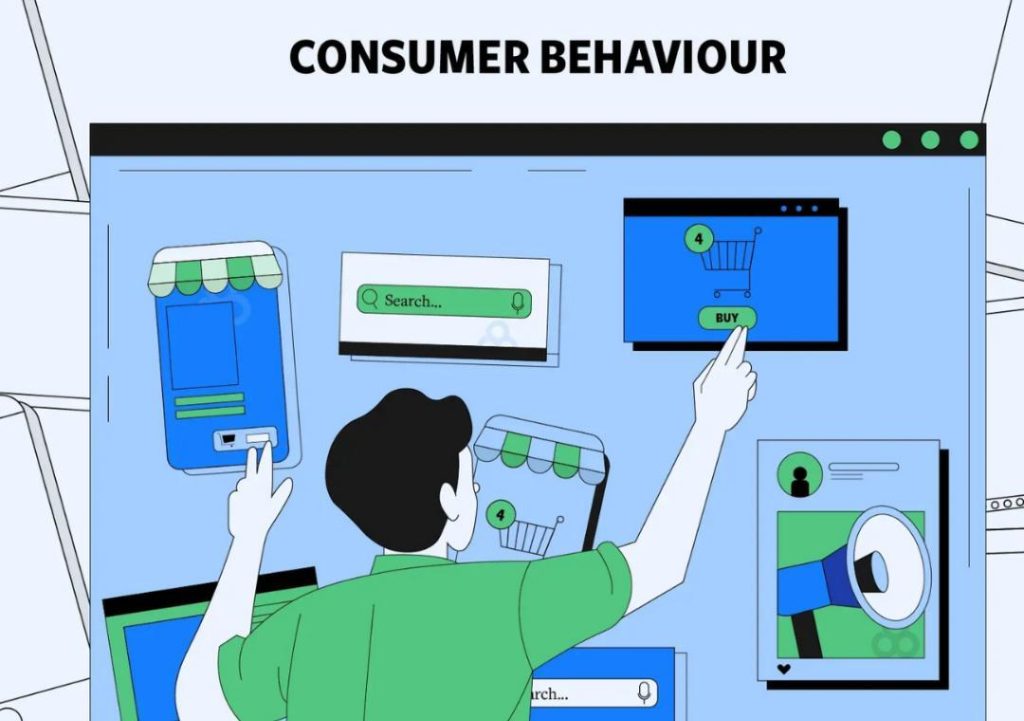
What Online Habits are Ruling Consumer Behaviour?
The world of online shopping has undergone a significant transformation in recent years. Gone are the days of browsing through physical stores, researching on search engines, and making purchases through e-commerce websites. Today, consumers have become increasingly demanding, and their online habits are reshaping the way businesses approach marketing and sales. In this blog post, we’ll delve into the latest trends that are driving consumer behaviour and explore how marketers can adapt to these shifts to stay ahead of the competition.
Personalisation is Key
In today’s digital landscape, consumers expect personalisation in every interaction with a brand. This means that businesses must be able to tailor their messaging, offers, and services to individual customers based on their preferences, interests, and purchasing history. According to a study by Salesforce, 80% of consumers are more likely to do business with a company that offers personalised experiences. To achieve this level of personalisation, businesses can leverage data analytics, AI-powered chatbots, and targeted marketing campaigns.
Instant Service is a Must
Consumers have come to expect instant service and responses from businesses. This is particularly true for millennials and Gen Z, who are used to instant gratification in their personal and professional lives. A study by Oracle found that 80% of consumers believe that a brand’s ability to deliver instant responses is an important factor in their decision-making process. To meet this expectation, businesses can invest in live chat support, social media monitoring, and mobile-friendly customer service platforms.
Brand Alignment with Values
Consumers are no longer just looking for products and services; they’re also seeking brands that share their values and beliefs. According to a study by Edelman, 64% of consumers believe that companies must help solve societal issues, and 52% believe that companies must take a stand on important issues. To align with consumer values, businesses can incorporate social responsibility into their marketing strategies, partner with social causes, and showcase their commitment to sustainability.
Blending Platforms and Touchpoints
The lines between online and offline shopping have become increasingly blurred. Consumers now expect seamless experiences across platforms and touchpoints, whether they’re shopping online, in-store, or through social media. According to a study by Accenture, 73% of consumers prefer a seamless shopping experience across channels. To achieve this level of integration, businesses can invest in omnichannel marketing strategies, mobile payment systems, and in-store pickup options.
Micro-Influencers are the New Influencers
Influencer marketing has become a key component of many marketing strategies, but consumers are no longer swayed by traditional celebrities and influencers. Instead, they’re turning to micro-influencers – individuals with smaller, niche followings who are often more relatable and authentic. According to a study by Tomoson, micro-influencers can generate an average ROI of $6.50 per dollar spent, compared to $0.06 per dollar spent on celebrity influencers. To leverage micro-influencers, businesses can identify niche influencers in their industry, collaborate with them on content creation, and track the performance of their influencer campaigns.
Rethinking Marketing Strategies
The shifts in consumer behaviour outlined above require marketers to rethink their strategies and approach. Here are a few key takeaways:
- Personalisation is key: Tailor your marketing messaging and offers to individual customers based on their preferences and interests.
- Instant service is a must: Invest in live chat support, social media monitoring, and mobile-friendly customer service platforms.
- Brand alignment with values: Incorporate social responsibility into your marketing strategies and partner with social causes.
- Blending platforms and touchpoints: Invest in omnichannel marketing strategies and integrate your online and offline channels.
- Micro-influencers are the new influencers: Collaborate with micro-influencers in your industry and track the performance of your influencer campaigns.
By adapting to these shifts in consumer behaviour, businesses can stay ahead of the competition, build stronger relationships with their customers, and drive growth in the years to come.
News Source:
https://www.growthjockey.com/blogs/consumer-behaviour-trends






